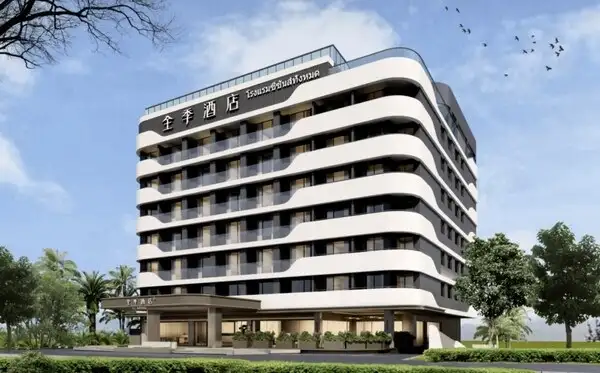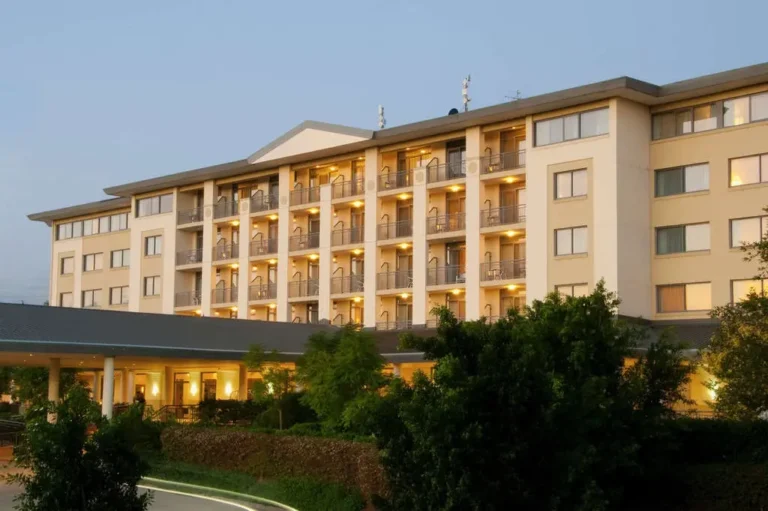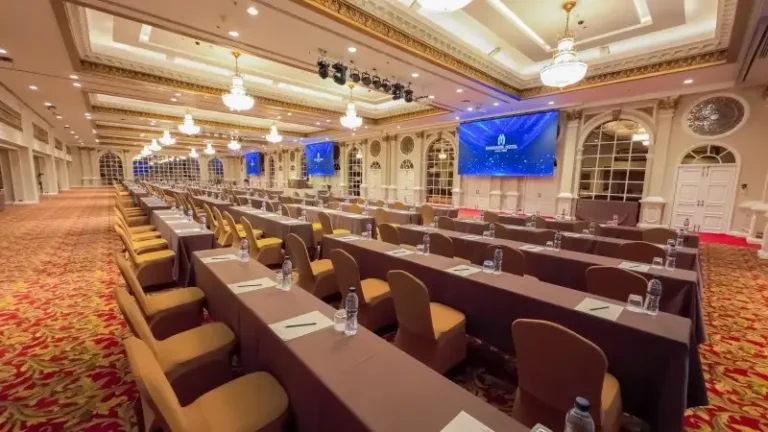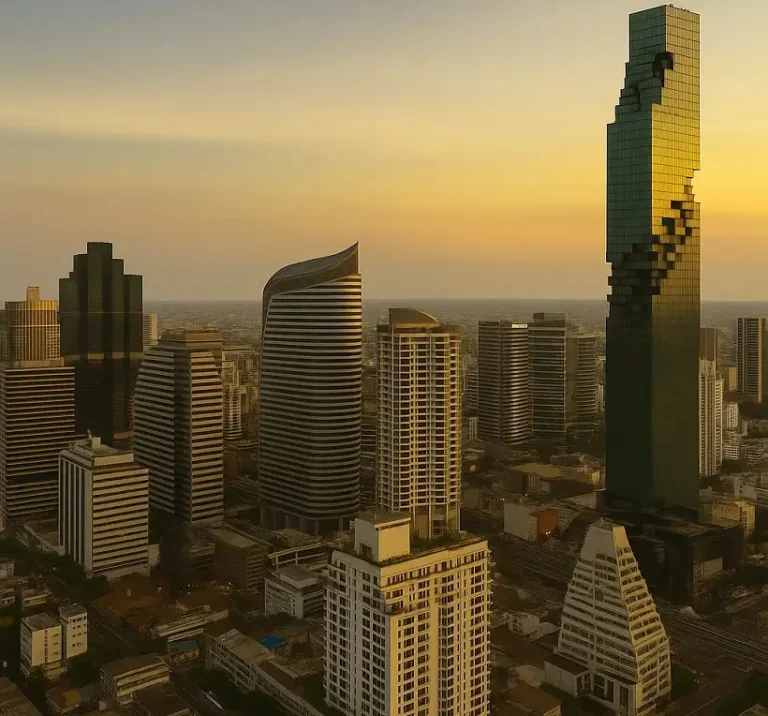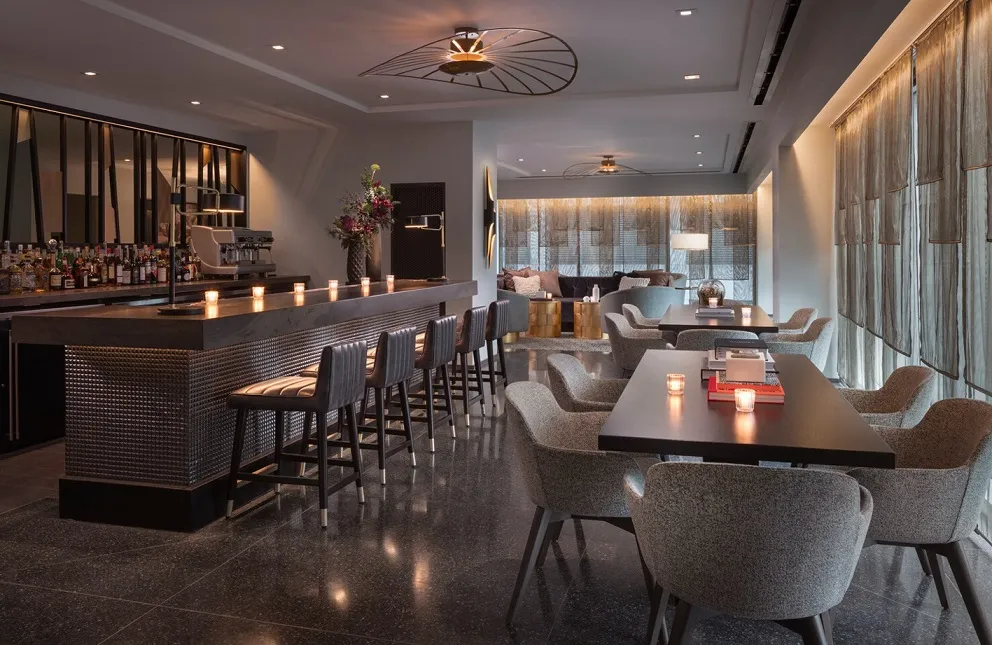
Hotel News: A New Trade War Sets the Stage for Travel Turmoil
In a world already tested by a pandemic and economic uncertainty, a new storm is brewing – one fueled not by nature, but by policy. The Trump administration’s aggressive return to protectionist trade policies, headlined by sweeping tariffs against numerous countries, is once again shaking up the global economy. While initial attention has largely focused on manufacturing and agriculture, the ripple effects are being deeply felt in an often-overlooked sector – hotels and tourism.

Image Credit: Freepik
From construction delays to soaring operational costs and a significant decline in foreign tourism, hotels across the United States and much of Asia are grappling with a new era of challenges. And this Hotel News report finds that as the second Trump term reintroduces tariffs with renewed intensity – targeting China, Japan, Southeast Asia, and more – the global hospitality landscape may never be the same.
US Hotels Caught in a Web of Rising Costs and Shrinking Demand
During Donald Trump’s first presidency, the US hotel industry already began to feel the sting of protectionist trade policies. Tariffs on goods from major supply sources, particularly China, disrupted the availability and affordability of everything from bed sheets to banqueting furniture. Hotel chains, both budget and luxury, found themselves burdened by sharply rising import costs. Even as some tariffs were revised or temporarily suspended in subsequent years, their lingering effects continued to gnaw at bottom lines.
Operational costs for US hotels rose significantly as items like electronics, linens, kitchenware, and furniture saw price hikes. Many hotels that couldn’t shoulder the increased expenses passed them onto guests, leading to higher room rates and reduced guest satisfaction. Budget hotels, in particular, found themselves at a crossroads – either sacrifice quality or raise prices. Both options put them at a disadvantage in a fiercely competitive market.
The construction and renovation segments of the hotel industry also took major hits. Steel and aluminum – critical to modern building projects – were among the most heavily tariffed imports, resulting in construction cost blowouts. Projects in hospitality hubs like New York, Los Angeles, and Miami were either delayed or completely shelved. Smaller developers with limited financial buffers suffered the most, pushing an already strained industry into prolonged stagnation.
Tourism Takes a Blow as Perceptions and Prices Shift
Beyond the hard costs and stalled projects, a more insidious effect of Trump’s trade war emerged: a steep decline in international tourism. Countries targeted by these tariffs responded with suspicion, shifting their travel preferences away from the US. Chinese tourists, a major revenue source for American hotels, particularly in cities like San Francisco and Las Vegas, drastically reduced their visits. Perception matters in tourism, and for many international travelers, the United States began to seem unwelcoming.
This wasn’t just about economics; it was about optics. Anti-foreigner rhetoric, stories of deportations, and increased visa scrutiny created a hostile image that foreign visitors couldn’t ignore. As inbound tourism declined, the US hotel sector lost a key demographic – international guests who typically spend more per stay and often travel for business or conventions.
The decline in international business travel further compounded the issue. Conferences, corporate retreats, and trade shows saw diminished foreign participation as travel became both politically and financially unpalatable. For hotels that once thrived on hosting these high-margin events, it was a significant revenue gap that domestic tourism alone could not fill.
Asia’s Travel Ecosystem Faces Its Own Reckoning
Across the Pacific, the picture is no less turbulent. Asian nations were among the hardest hit by the newest round of tariffs. While Singapore was levied a relatively modest 10% base rate, others such as China (54%), Vietnam (46%), and Thailand (36%) saw massive increases. Experts aptly called the tariffs “truly remarkable” in their scope and potential to “break the business models” of countless companies – and that includes those tied to travel.
Travel within Asia had been on a recovery trajectory post-COVID, with intra-regional tourism booming. Marriott and other major hotel chains saw intra-Asia travel jump from 37% of bookings pre-pandemic to nearly 60% today. Short-haul routes within the Asia-Pacific region are thriving, aided by a growing middle class and increased low-cost carrier capacity.
But now, with rising economic pressure and the threat of retaliatory restrictions—such as visa limitations or taxes on outbound travelers – industry insiders are bracing for another blow. Nicholas Cocks of Velocity Ventures warns that border control measures in retaliation to US tariffs could destabilize the sector further. The global uncertainty created by these moves is causing investment hesitancy, and the discretionary nature of travel makes it one of the first casualties in an economic downturn.
Brand USA Suffers as Travelers Look Elsewhere
The damage is not just financial – it’s reputational. According to Professor Scott Galloway, the “Brand USA” has experienced one of the sharpest drops in consumer perception globally. For travelers, especially from Southeast Asia and the Middle East, the US now represents an expensive, politically volatile destination.
Ross Veitch, CEO of Wego, a travel agency focused on Asia and the Middle East, notes that increased costs due to tariffs, combined with anti-immigration sentiment, have damaged America’s image. Visitors are turning instead to regional alternatives. McGearty of Meili predicts that inbound tourism will continue to suffer, even as domestic US travel may offer a temporary buffer.
Japan, which saw a 33% increase in American tourists in 2024, could also feel the fallout. Retaliatory tariffs might increase costs, reduce demand, and further bolster regional travel at the expense of long-haul destinations. Europe, too, may see fewer US travelers, replaced by stronger intra-regional travel.
Finding a Soft Landing Through Intra-Asia Travel
Amid this global turbulence, there is one potential lifeline: intra-Asia travel. According to the Pacific Asia Travel Association (PATA), 80% of international trips by Asian travelers in 2023 remained within the region – a marked increase from the 70–75% seen pre-pandemic. The shift is fueled by rising affluence, proximity, and cultural familiarity.
China’s outbound travel now overwhelmingly favors nearby destinations like Thailand, Singapore, and Japan. Low-cost carriers are thriving, with regional seat capacity returning to 95–100% of pre-COVID levels. A new travel normal is emerging – one that is more domestic, more regional, and potentially more resilient.
Hannah Pearson, director of Pear Anderson, draws lessons from the 2008–2009 financial crisis. Back then, advanced economies suffered greater tourism losses than emerging ones. She believes Asia might again weather the storm, especially as it remains its own largest source market. In 2024, 77% of international arrivals within Asia came from other Asian countries.
Even with the high tariffs imposed on key Asian nations, the desire to travel remains strong. Survey after survey shows that leisure travel is a priority, even in economic downturns. Travelers may stay closer to home and tighten budgets – but they won’t stop traveling altogether.
A Changed Landscape with No Turning Back
The consequences of Trump’s tariffs are set to reshape the hotel and travel industries for years to come. From US hotel owners grappling with cost inflation and dwindling foreign guests to Asian travel leaders facing economic retaliation and shifting demand, the impact is far-reaching and complex. The global hotel ecosystem, once interconnected and fluid, is becoming fragmented, regionalized, and unpredictable.
However, within this chaos lies a new form of resilience. The hotel industry – both in the US and Asia – is finding ways to adapt. American hotels are increasingly turning to local suppliers, investing in automation, and embracing sustainability to reduce dependence on imports. Asian hotels and destinations are leveraging regional demand, tailoring offerings for intra-Asia travelers, and expanding low-cost travel networks.
There is no denying that the sector will continue to face headwinds. But there is also opportunity for reinvention. The hotels and destinations that will thrive in this new era will be those willing to innovate, diversify their markets, and adjust swiftly to shifting trade and travel dynamics.
It is clear that the age of globalized hospitality, as we knew it, is being rewritten. What rises in its place will depend not just on policy, but on the flexibility and creativity of those within the industry. As tariffs redraw economic borders, the most successful players will be those who stay agile, rebrand effectively, and build stronger regional ties.
For the latest Hotel News, keep on logging in to Bangkok Hotel News.
You May Also Like:
Hyatt Expands Boldly Across India and Nepal with Seven New Hotels in 2025 Amid Massive Hospitality Growth Surge

